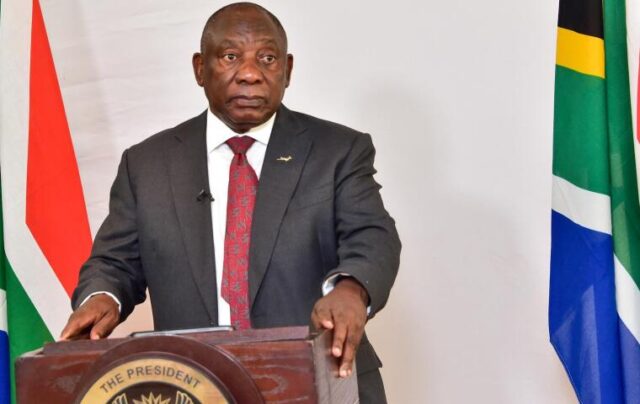The mandate of the SA Reserve Bank (SARB) and its accountability to Parliament, and efforts to combat violence against women and children came into focus in the National Assembly, when President Cyril Ramaphosa delivered oral replies to MPs.
THE mandate of the SA Reserve Bank (SARB) and its accountability to Parliament, and efforts to combat violence against women and children came into focus in the National Assembly, when President Cyril Ramaphosa delivered oral replies to MPs.
It was Ramaphosa’s final appearance before the House for the year.
It came as the country heard on Wednesday of rising annual budget deficits that would force the government to borrow an average of R553 billion a year over the medium term.
Ramaphosa maintained that the Reserve Bank was an independent entity, and there was no intention to change its mandate.
This while the bank was rocked by instability last week when deputy governor Kuben Naidoo asked to quit – paving the way for new leadership at the bank before the 2024 elections.
“The primary objective of the SARB is to protect the value of the currency of South Africa in the interest of balanced and sustainable growth in the republic,” said Ramaphosa.
“South Africa faces a structural growth and unemployment problem, which cannot simply be addressed by a mere accommodative monetary policy stance. We need to focus on the structural factors constraining our economy.
“That is why, as part of our efforts to accelerate growth and job creation, we are committed to macroeconomic stability, the rapid implementation of the reforms we have undertaken, and a capable state that provides the necessary goods and services to its citizens, while the Reserve Bank should, without sacrificing price stability, take into account broader objectives such as employment creation and economic growth.
There is, therefore, currently no intention to review the mandate of the SARB. In terms of our Constitution, the SARB, in pursuit of its primary objectives, must perform its functions independently.”
The impartiality of the SARB was called into question on Thursday by DA leader John Steenhuisen who highlighted that the bank found no evidence that a sale was concluded and exchange control regulations were contravened, after complaints relating to the stolen millions of rand (in US dollars) concealed in couches at Ramaphosa’s Phala Phala farm in 2020.
Meanwhile, MPs also welcomed the passing of the National Council on Gender-Based Violence and Femicide Bill this week.
Civil society organisations have cautiously welcomed the passing of the bill, touted to end the abuse, violence, and murder of women in the country. Among its provisions is for a national strategic plan to be developed and implemented within six months, and the establishment of a national council that will manage an approach to GBVF.
Child protection and victim empowerment organisation Molo Songololo director Patric Solomons said while they welcomed the passing of the bill, they were concerned that it was biased to GBVF related to women and marginalised children and men.
“No special provisions are made for children’s representative to be part of the council and to include the involvement of children in the work of the council.
“Children’s NGO representatives in civil society and from government services are not protected to guarantee their participation as members on the council. Molo Songololo is hopeful that this bill, once enacted into law will make a difference in prioritising government and civil society’s response to prevent and combat GBVF,” v said Solomons
Anti-GBV non profit organisation Ilitha Labantu’s spokesperson Siyabulela Monakali said the government continued to fail communities and the NGO sector carried the burden
“There appears to be a lack of collective action from all sectors in the country with regards to addressing the scourge of GVBF … If there is a failure to unpack the many contributory factors that lead to the high prevalence rate of GBVF in all communities this too will be added to the pile of plans that failed to be translated into meaningful action.”
Cape Argus








